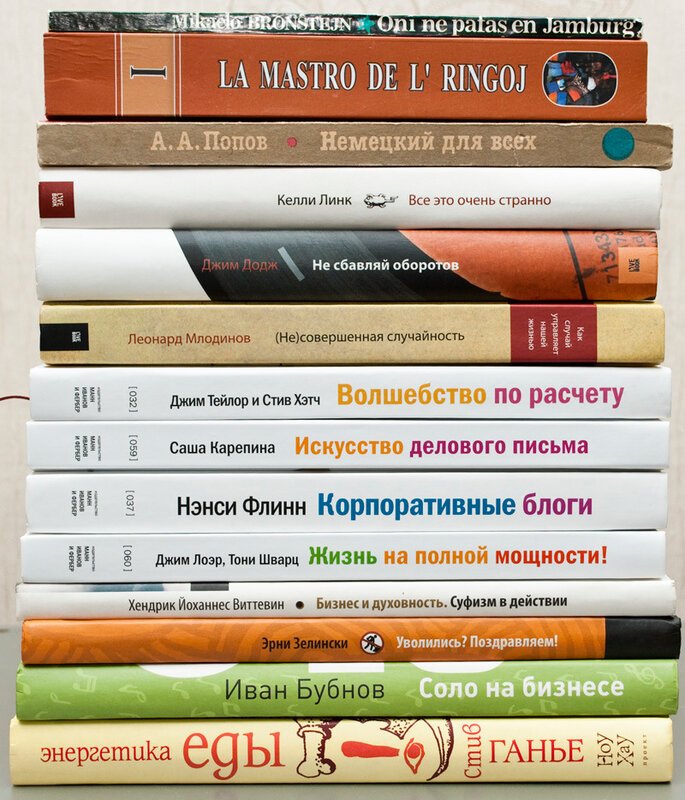Once upon a time, at the dawn of my freelancing activity, I earned very little, but I firmly decided to spend 10% of my income on books. Then I could barely buy one normal book with this money. Years have passed, and I have firmly adhered to this rule. Now, at 10% of my monthly salary, I can buy so many books that I can't read in a year — and this means that I bought and read books for a reason.
Always save 10% of your income for books — this is the best investment of this money. There is no need to postpone more, less too.
Here is my monthly norm for today:

I also like to call this rule "read smart". I never read a book twice. This is because I "squeeze" all the ideas out of it in as much detail as possible — the notepad helps me. Reading the book, I write out all the interesting and useful ideas, all the links to other books, I write out quotes that inspire me. When there is no notebook at hand or it is inconvenient to use it, I write in the margins with a pencil.
As a result, I have a squeeze of the book in my notebook, the concentration of its ideas, the quintessence of meaning. It's nice to reread the notebook afterwards — it's very inspiring.
And most importantly, such reading allows you to penetrate deeply into the book.
Combining the first two tips, we have a rule to spend 10% of the money on books and a list of interesting books in a notebook. This very list is the "to-do" of future purchases. It is regularly shuffled and recycled — personal and professional interests tend to change.
Two is better. In fact, it doesn't matter how much you read (although I strongly advise reading at least an hour a day). It is important to do this regularly — accustom yourself to the rule "not a day without a book".
It is very difficult to allocate an hour a day for reading, especially for a busy person. In this case, I advise you to divide the reading into small twenty-minute segments that can be evenly "eaten" throughout the day. Reading at night before going to bed is not cool, a tired brain will refuse to perceive the book and consider it a sleeping pill.
I'm a big fan of books about self-development and motivation (I'm probably one of those people for whom reading books about self-development has replaced self-development). However, reading only such books every day is boring. Therefore, alternate books, first useful, then fiction, then business, and then art. Art books are also very useful and interesting to read.
Read it — on the shelf? Why! If you read it correctly, you quickly realize that the book turns into a disposable thing, a kind of syringe with ideas for an intellectual addict.
I advise you to exchange books with friends and acquaintances. First of all, it's a cool way to save money. Secondly, you help your friends to learn and develop. I have already lost count of the books I have sent by mail to my friends — and it is pleasant to me, and it is useful to them.
No matter what anyone says, but the paper book is gradually dying out, turning into a kind of vinyl record — a pleasure for fans. Reading in a reader is easier, simpler and much cheaper. For a reader lover, the reader pays off in about two months. And it's hard to count how many trees you will save.
These are my simple rules and laws. Once you start reading, it's impossible to stop. I'll tell you that for sure. And one more thing: as the unknown designer Artemy Lebedev once said, every successful person is first of all books that he read on time.